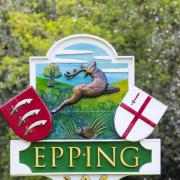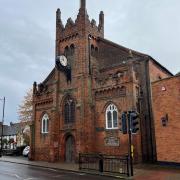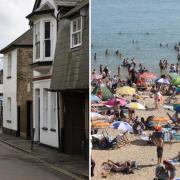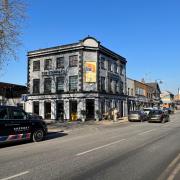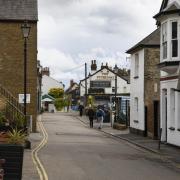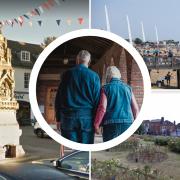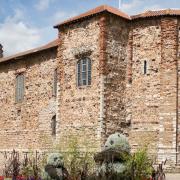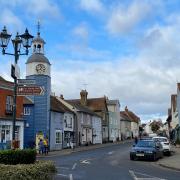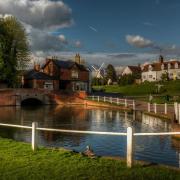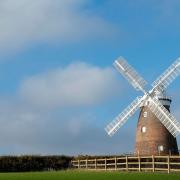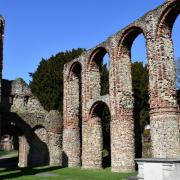Stephen Roberts looks at the day Tilbury saw the merchant vessel Empire Windrush dock with
close to 500 Caribbean workers and the contribution immigrants have subsequently made to life in the county and across the UK
Tilbury already had its place in history; the first Christian mission to pagan Essex was arranged here and famously Elizabeth I addressed her troops on Tilbury soil as they faced Spanish invasion in 1588.
Tilbury Fort followed in the 17th century, a defence against French and Dutch attacks, then the huge docks emerged from the 1880s onwards.
It was to these docks that later, peaceful travellers would arrive.
‘I know I have the body of a weak and feeble woman, but I have the heart and stomach of a king,’ began the Virgin Queen, as she raged at the temerity of those who would invade her kingdom. Strong hearts and stomachs were needed as much by this latter group who came here 460 years later, looking not for war, but work.
492 souls berthed at Tilbury in June 1948. They arrived on merchant vessel, Empire Windrush, depositing the first tranche of Caribbean workers on a battered country, desperately needing help with post-war reconstruction. Essential services such as the NHS and London Transport were suffering employment shortages and urgently needed more labour.
Families on that ship were searching for a better life than the one back home. They were warned on arrival, however, that things wouldn’t be easy for them. In fact, Tilbury Docks provided probably one of history’s least-friendly welcoming committees. They hadn’t long set foot on Essex soil before they were already being given a pep-talk. Many would be ‘housed’ in air-raid shelters before dispersal to areas where they were needed. These weren’t the first Caribbean folk to come to the UK, of course, but they were the first arriving ‘en masse’, with all the attendant publicity.
The arrival of Empire Windrush was the beginning of a steady influx of West Indians arriving to help in the reconstruction of Britain’s war-ravaged cities. Interestingly, today’s debate on immigration was already being presaged, as some politicians pressed for legislation to control numbers
The quest for a better life resonates with me. Protection of and ambition for one’s family is uppermost in most people’s minds and I am no different.
If I needed to go elsewhere to guarantee those things, it would be my hope that there would be a country brave enough and kind enough to take me in.
In 1948 the UK obliged and 500 to 700 a month came from the Caribbean in the years that followed. The desperation to find that better life meant the ship carried more than its 492, as there were also some stowaways.
The determination to get here was clear. Passengers saved, borrowed and sold to afford an 8,000-mile one-way trip to a country they knew little about, leaving behind family they may not see again, or at least, not for some time. Their arrival point, even in an English summer, was an Essex port that most people would probably have described as ‘bleak’ on a misty morning.
Those who had been here before, were mostly (and tellingly) returning to a country they fought for during World War II, when they had been incorporated into British units. They probably felt the welcome was warmer then, when Britain needed them to fight on its behalf. One of those ex-servicemen would become a mayor of Southwark. He sold three cows in order to afford his ticket and in spite of his war service, still felt apprehension that the ship might be turned around and his new life ended before it started.
That link with ex-servicemen is tangible. Our former colonies provided 2.5 million men and women who helped defeat Axis forces in World War II. These people regarded Britain as their ‘mother country’. In a touch of irony, the vessel now bringing them here had originally been launched in Germany in 1930.
One thing was certain, as passengers disembarked and made their way through Tilbury, they were walking into a new life in Britain and were, through their courage, launching a new era in their adoptive home.
Martin Luther King famously said that he hoped for a future in which people would be judged ‘by the content of their character’. It is a mantra that has served me well, that you judge each person as an individual, on his merits. How fitting it is that campaigners in the UK, who would like a Windrush Day public holiday to mark the contribution of our Black and Asian communities to UK life, cite its equivalent, Martin Luther King Jr Day, which has existed in the US since 1986.
If it ever happens, the chosen day would surely be June 22, when Empire Windrush crept into Tilbury and lives and nation were forever changed. Perhaps such a day will help towards a more tolerant and respectful society in the future. Essex certainly played its part.




